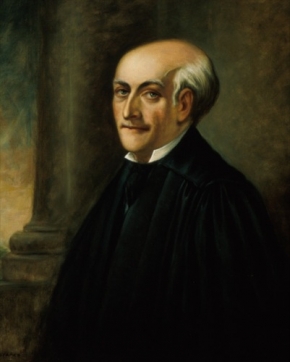You are here
Circuit Court Opinions:
Associate Justice Henry Brockholst Livingston, Adams v. Storey (1817)

Adams v. Storey, 1 F. Cas. 141 (C.C.S.D.N.Y. 1817) (No. 66) [Second Circuit]
In Adams, Justice Livingston considered whether an 1811 New York state law providing for the discharge of certain debts was unconstitutional because it impinged on the federal government’s power to make uniform bankruptcy laws. Livingston upheld the law, ruling that it was an insolvency statute and not a bankruptcy law (at the time, the former was a proceeding initiated by the debtor, while under the latter, creditors could bring a suit). His opinion went on, however, to examine the question of whether the law could stand if it were construed to be a bankruptcy statute.
Livingston began by noting that at the time of the making of the Constitution, all states possessed the power to enact insolvency and bankruptcy laws, so New York retained this power unless the Constitution removed it. Because the Constitution made it optional for the federal government to pass laws on the subject and contained no prohibition on the states, Livingston held that it had not impaired the states’ ability to legislate. Congress presumably agreed, he noted, as it had long left the country without a federal bankruptcy law. Congress had the power to make a uniform bankruptcy law, “[b]ut if they furnish none, how is it an interference for each state to legislate for itself?” he asked. Livingston also rejected the argument that the state law, by allowing for the discharge of debts existing before its passage, violated the Constitution’s Contracts Clause, which prohibited states from making laws impairing contractual obligations. In doing so, he relied on historical practice and the longstanding acceptance of insolvency and bankruptcy laws to conclude that the Constitution did not bar such laws.
In 1819, the Supreme Court ruled in Sturges v. Crowninshield that insolvency and bankruptcy laws applying to debts incurred after their passage did not violate the Contracts Clause. In Ogden v. Saunders (1827), however, the Court held such laws unconstitutional insofar as they applied to preexisting debts. Both Sturges and Ogden recognized states’ general right to legislate in this area as long as a state law did not conflict with a uniform federal bankruptcy law.
